Ernes Ametov was born in the city of Tashkent, Uzbekistan, in May 1985. In 1992, the Ametov family returned to Crimea, to the city of Bakhchysarai. Ernes graduated from high school, after which he entered Tavriiskyi National University. He received a higher education. He is a lawyer by profession. In 2009, he got married. He has two wonderful sons. Ernes was engaged in entrepreneurial activities. In addition, he is a specialist in Internet communication. His great passion was videography; he shot commercials. He was also interested in Crimean Tatar decorative and applied art, was engaged in coining, and made jezves from copper. Ernes Ametov is a God-fearing, benevolent, prudent, very reserved, and educated person. He is a great son, husband, and father.
After the illegal annexation of Crimea, he became a citizen journalist of Crimean Solidarity, working as a photographer and videographer. He was charged under Section 2 of Article 205.5 (participation in the activities of a terrorist organization), Section 1 of Article 30, and Article 278 of the Criminal Code of the russian federation (preparation for a violent seizure of power). He was in custody from October 11, 2017, to September 16, 2020, when he was acquitted. On March 14, 2022, the Military Court of Appeal in the village of Vlasikha near Moscow overturned the acquittal of Ernes Ametov. The new sentence is 11 years of imprisonment in a strict regime colony.
In October 2017, russian security forces searched his home, causing psychological trauma to minor children. Ametov was detained together with five other Crimean Tatars, among whom three were citizen journalists – Seyran Saliev, Marlen Asanov, and Timur Ibragimov. The Crimean Muslim spent three years of investigations and trials in detention centers in Crimea and Rostov-on-Don. Ametov was accused of being involved in the activity of a terrorist organization. In 2020, he was acquitted and released in the courtroom due to a lack of evidence. This was the first such case within the “Hizb-ut-Tahrir cases,” not only in Crimea but also in the territory of the russian federation. However, in March 2022, the Court of Appeal reviewed the decision of the Southern District Military Court and remanded the case. “The verdict of the Southern District Military Court dated September 16, 2020, regarding Ametov should be annulled and remanded for a new trial in a new composition of the court,” said the decision of the appeals court.
On December 29, 2022, a retrial of Ernes Ametov was sentenced to 11 years of imprisonment in a high-security prison.
“The human brain was given to compare and analyze information. That’s what I did. If this is a crime, then I’m sorry; I don’t know how to live if I can’t even compare information. To be an ordinary person, not to stick your head out more than is necessary in this country?” said Ernes Ametov in September 2020.
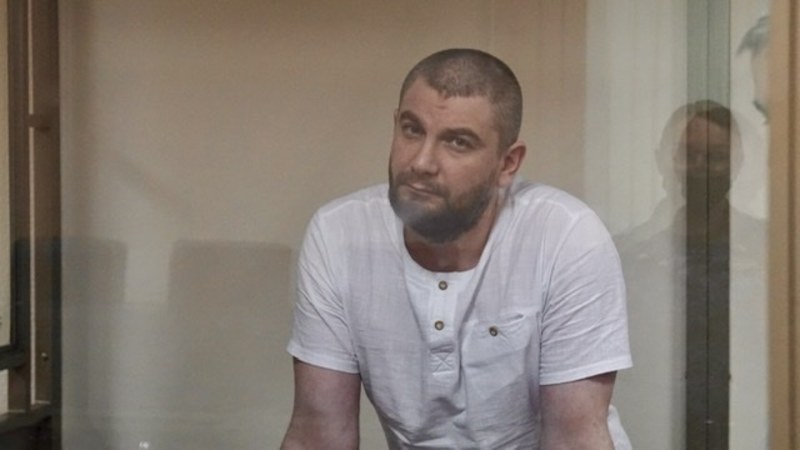
***
At the retrial of the criminal case of political prisoner Ernes Ametov, the Southern District Military Court reviewed the acquittal he had previously handed down. Ernes Ametov voluntarily came to the preliminary hearing for retrial. Judge Alexey Magomadov decided to take Crimean Tatar into custody for two months. The prosecutor’s office accuses Ametov of participating in a terrorist organization and attempting a coup d’état in Crimea.
At the Southern District Military Court in Rostov-on-Don, prosecutor Evgeny Kolpikov gave a speech. The prosecutor asked the court to sentence citizen journalist Ernes Ametov to 18 years and six months of imprisonment in a high-security prison in the Hizb ut-Tahrir case. State prosecutor Evgeny Kolpikov said that Ernes Ametov should be found guilty and sentenced to 18 years and six months of imprisonment in a high-security prison by a partial combination of punishments. From this term, Ernes Ametov will have to spend the first five years in prison, the prosecutor said, and after his release, he will have to observe restrictions for seven months. Despite the accusations of terrorism, there is no mention in the case file of the storage of weapons, explosives or the actual plans of the defendants to commit terrorist attacks.
In the Southern District Military Court, instead of questioning secret witnesses, the public prosecutor released documents and transcripts of audio recordings from the case file. Ernes Ametov emphasized again that neither he nor what the prosecutor said had anything to do with the Islamic political party he was accused of being a member of.
In addition to the protocols of the search and inspection of objects, the accuser presented to the court an optical disk of the FSB with a recording of the men’s conversation on July 13, August 6, July 31, and November 15, 2018. It features the voices of convicted activists in the case of the “second group of Bakhchysarai” of Hizb ut-Tahrir.
Ernes Ametov noted that his voice is not present in the three recordings, and where he was at religious gatherings, the defendant had his constitutional right to freedom of religion.
Lawyer Azamatov also commented that the prosecutor did not explain from the transcript what Ametov‘s criminal activity consisted of; besides, only one of the three contains Ametov‘s voice – in it, he asks the question about his whereabouts. The lawyer drew attention to the fact that the communication took place in a mosque.
Ametov separately explained that it was about the Hadiths; he did not understand how it was related to the organization, which he did not join and did not plan to join.
There is no evidence of an attempt to overthrow the constitutional system of the russian federation and seize power. The case materials contain audio recordings on which it was recorded that the convicts held discussions on religious and political topics. Which, in fact, was the only evidence that they had committed a crime of a terrorist nature.
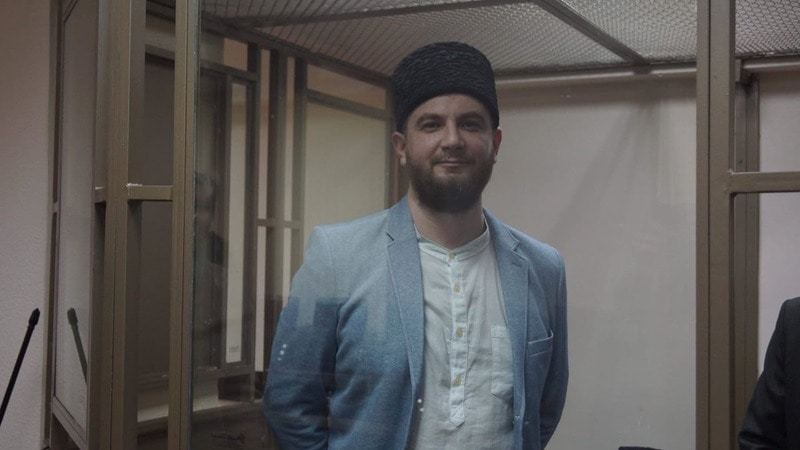
***
“It is a great honor for me to defend a person who, facing such a choice, did not get scared, did not give in to fear, did not give in to weakness, but made his choice. He did not start talking about things that did not correspond to reality. The real purpose was to recruit Ametov to testify in other criminal cases. Let them be false, contradictory, and unclear, but necessary for the investigation. The real reason why Ametov is behind bars in front of you as a defendant is that he refused such an offer,” lawyer Dzhemil Temishev said in the debate.
Ametov denied his involvement in the crimes described in the indictment, even at the preliminary hearing. Despite the accusations of terrorism, there is no mention in the case file of the storage of weapons, explosives or the actual plans of the defendants to commit terrorist attacks.
The indictment includes audio recordings of wiretapping in which the participants in the case discuss everyday, political, and religious topics. Investigative experts found in them signs of involvement in the organization Hizb ut-Tahrir, banned in the territory of the russian federation. At the same time, independent experts deny this. Incriminating statements about political prisoners were given only by anonymous witnesses whose words cannot be verified, employees of special services, and eyewitnesses.
Judge Alexey Magomadov issued a guilty verdict against Ernes Ametov, sentencing him to 11 years in a high-security prison and one year of restrictions. After his release, Ametov will be prohibited from leaving the territory of Crimea, organizing and participating in public events, changing his place of residence, and staying without the consent of the Federal Penitentiary Service of russia, leaving the house between 10 p.m. and 6 a.m. He will also be required to appear at the specified state body twice a month for registration.
“I am a believer, and I accept my fate. I want to say that if what is happening here was not to God’s liking, it would not be happening. So, this is His will. I obey, whatever Your judgment will be just. But I reject the false accusations that have been thrown at me, and I want to say: today, you make your judgment, and let the Lord make his. Thank you,” said the prisoner in his last words.
Lawyer Ayder Azamatov tried to convince the court that Ametov did not attend any religious meetings and events after his release, being under his supervision. “In the statistics of the Southern District Military Court, there is only one case in which the defendant was released. Do not be held hostage by statistics because, after his release, Ametov did everything possible so that there were not even suspicions about him.” However, the judges were not convinced by these words.
Currently, at least 158 Ukrainian citizens are in prison or under house arrest in russia and temporarily occupied Crimea for political reasons. Among them, 16 are journalists, including 12 Crimean Tatar citizen journalists.
***
Defense witnesses refuted key charges in the case of the Second Bakhchysarai Group of Hizb-ut-Tahrir, the lawyer said. According to him, one of the witnesses was the representative of the Spiritual Administration of the Muslims of Crimea, Rezvan Maksudov. He was the coordinator during the Hajj to Saudi Arabia, in which the accused participated. Rezvan Maksudov led organized groups of pilgrims from Crimea. He said that he met the accused during a walk when they were in the same group. He explained that during the pilgrimage, he did not observe the defendants making any radical statements regarding the currents of Islam; he said that they followed all the canons of traditional Islam.
“He talked in detail and a lot about my protégé, Ernes Ametov, about the fact that he followed all the recommendations of the representative of the Spiritual Administration of the Muslims of Crimea. According to the witness, Ernes Ametov did not leave during Hajj and did not meet with representatives of the Hizb ut-Tahrir organization. And the indictment states that Ernes Ametov received some devices there to destabilize the situation in Crimea and to organize propaganda among the population with the aim of eliminating the constitutional order of the russian federation and establishing a caliphate. The witness denied all this. Ernes Ametov has repeatedly stated that he has nothing to do with Hizb ut-Tahrir,” Ayder Azamatov said.
The witness also said that other members of the second Bakhchysarai group followed all the recommendations of the Spiritual Administration of Muslims of Crimea during the Hajj, did not distribute any literature, and used only the original Arabic Koran. According to the lawyer, these witness statements are very important, as they refute the prosecution’s version of that the participants in the case, being members and organizers of the Hizb ut-Tahrir cell, received some installations during the pilgrimage.
“The other seven witnesses, in particular, spoke about Ernes Ametov‘s source of income. According to one version of the indictment, Ernes Ametov received a certain financial reward from Marlen Asanov (also a member of the second Bakhchysarai group, — ed.) and, thus, he was financially dependent on Marlen Asanov and, according to the prosecution, he was following Asanov’s instructions. This version of the investigation was denied. The witnesses explained that Ernes Ametov worked in different areas of business in Crimea at different times. He sold souvenirs, worked as an Internet provider, and worked as a photographer. He was not dependent on anyone. These facts were very important. All witnesses gave a positive description of all those involved in the case, declaring their integrity and law-abidingness,” explained the defense attorney.
Ayder Azamatov also recalled that the defense previously questioned the independent expert linguist Olena Novozhylova, who testified that the examination referred to by the accusation was conducted with numerous violations. According to the expert, the linguists who studied the conversations of the accused often went beyond their competence. According to her, questions of religion and psychology are not within the competence of a linguist. However, the linguists who conducted the examination in the case gave an assessment of these issues.
According to the human rights center Memorial, the occupation authorities of the russian federation, by their actions in this case, violate a number of norms of the IV Geneva Convention on the Protection of the Civilian Population in Time of War and Protocol 7 to the Convention on the Protection of Human Rights and Fundamental Freedoms.
Crimean Solidarity recalled the resolutions of the European Parliament and the UN General Assembly demanding the release of all Ukrainian political prisoners, including those involved in this case. Judge Rizvan Zubayrov rejected the request to include these resolutions. At the same time, he rejected the same requests regarding the statements of the international organization Amnesty International, which recognized Crimean Tatar activist and coordinator of Crimean Solidarity Server Mustafayev as a prisoner of conscience, and the statement of the human rights organization Front Line Defenders for the immediate withdrawal of all charges and their release.
NUJU Information Service
The publication uses materials from the Crimean Solidarity NGO, the PEN-Ukraine website, Chytomo, the Radio Liberty website, the Radio Liberty project, the ZMINA Human Rights Center, the Memorial Center, etc. The Information Service of the National Union of Journalists of Ukraine (NUJU) expresses deep gratitude to colleagues for the opportunity kindly provided.

 THE NATIONAL UNION OF
JOURNALISTS OF UKRAINE
THE NATIONAL UNION OF
JOURNALISTS OF UKRAINE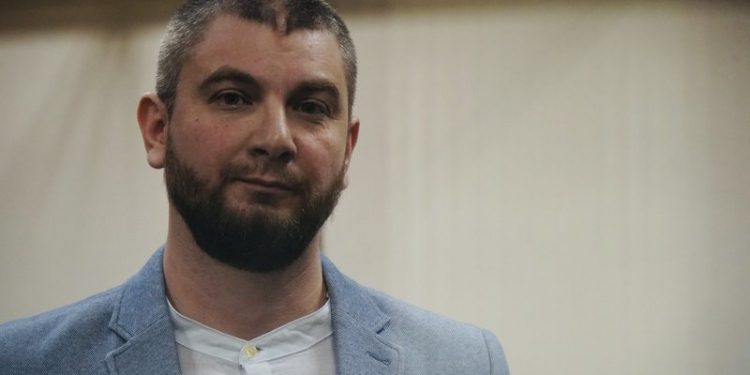
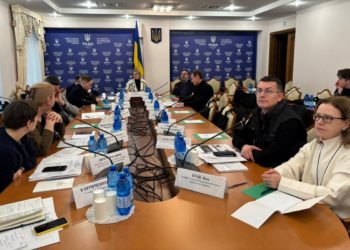
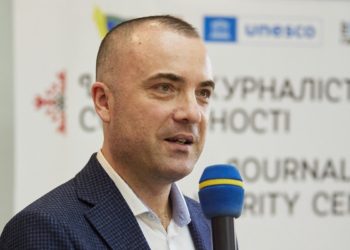
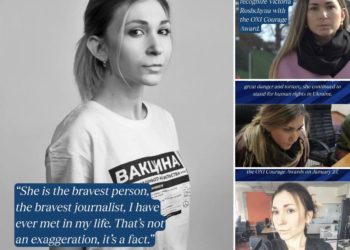













Discussion about this post